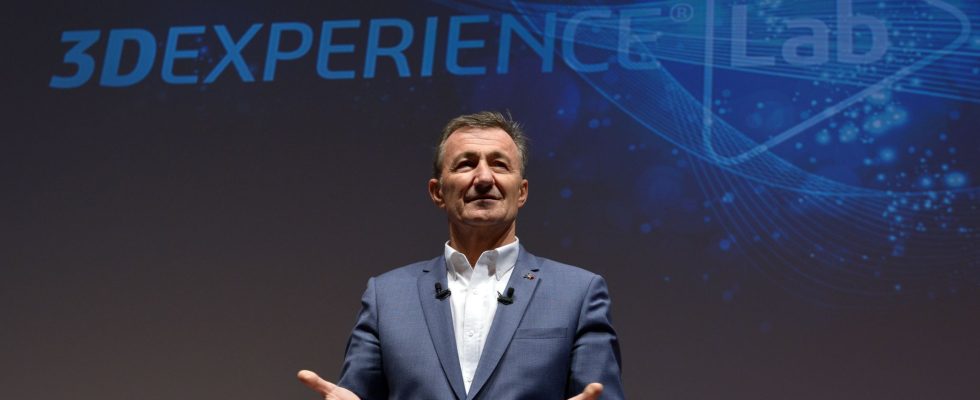Don’t be fooled by the title: The Renaissance of Industry* is not an essay on the return of factories to France. In a scholarly dialogue with the philosopher and professor at Telecom Paris Tech Pierre Musso, the boss of Dassault Systèmes Bernard Charlès engages in a completely different exercise: deciphering the fundamental driving force of the industrial act – “extracting from oneself to give to the other” – and analyze the effects of this “projection” on society. “I always ask people to sit in the future to look at the present. It changes everything, because you then reverse your point of view on the world,” assures the CEO of this world champion of 3D software – 5.7 billion euros in turnover, 22,500 employees -, entered this “successful start-up” forty years ago.
Modeling – of a plane, of a city, of a human heart – made possible today by digital technology, and of which Dassault Systèmes has become an expert, gives “the human being the possibility of seeing before it only exists as a thing that we imagine,” explains Bernard Charlès. Convinced that the hand forms the brain, and not the other way around, this “student of Da Vinci”, as he defines himself, considers 3D as a revolution of the same order as the invention of printing during the Renaissance. A revolution which still raises its share of concerns within companies: “I meet brilliant engineers every day who have knowledge, know-how, and who cannot trust the virtual world. They say: C ‘is good. But let’s go back to the real world and see how we’re going to do it.’ In fact, no: you have to simulate what you are going to do, and then apply it.”
The fruit of this imagination, the “digital twin” offers new possibilities. To virtually present a product to foreign buyers, there is no need to translate its characteristics: online experimentation serves as instructions. No more need to send a team on site with a prototype, which would risk revealing manufacturing secrets. “If we agree on the contract, then you will be able to have the object in this or that condition. For the moment, I am showing you in the virtual that it is very real”, summarizes Bernard Charlès.
Who are the most advanced nations today in this “double world” where the raw material of industry no longer resides in the thing but in the idea we have of it? On the sidelines of a conference at the Ecole des Mines in Paris, the boss of Dassault Systèmes, which operates in 130 countries, did not hide his admiration for China: “They think, they do, and the whole collective is aligned in this sense. What they have achieved in the electric mobility sector, for example, is extraordinary. The United States also still possesses this prodigious, almost physical relationship between the idea and the act : without a garage, no start-up.”
And Europe? “As in Japan or South Korea, the approach is more conservative, the break less valued.” However, he insists in his book, “we generally misunderstand the true nature of digital technology. Its most visible virtue is to increase productivity and competitiveness, but its real power, the greatest, is that of imagination […] The industrialists who succeed will be those who create a world whose vocabulary does not yet exist.” More than a conviction, a profession of faith.
* The Renaissance of Industryby Bernard Charlès and Pierre Musso ( éditions de l’Aube, 272 p, 24 euros)
